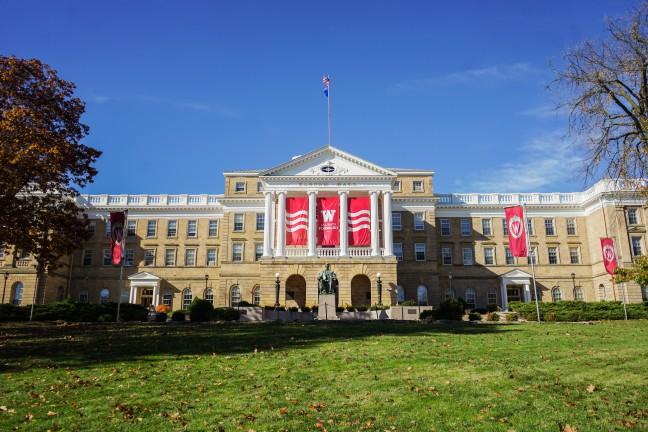One Badger’s experience with the University of Wisconsin Model United Nations club has translated into work with the actual United Nations.
Allison Perlin, who served as president of UW’s Model UN during her undergrad, graduated with degrees in political science and international human rights — a self-designed major — in 2015.
After graduating, she took a position in Washington, D.C. that led to an opportunity working with the United Nations in the Hague.
Perlin Skyped into the Madison Public Library Tuesday evening to share her experience with the International Criminal Tribunal for the former Yugoslavia with the United Nations Association of the United States of America, Dane County Chapter. Perlin spoke about her experiences within the UN and not as a representative of the international organization.
Being kidnapped, held at gunpoint won’t stop UW alumna from documenting war zones
Perlin explained how in the region now referred to as the Former Republic of Yugoslavia, the tension of intense diversity in terms of both ethnicity and religion contributed to conflict.
Bosnia, the most ethnically and racially diverse region, saw the most violence between the Bosnian Serbians and Muslims with the Bosnian War in the mid 1990s.
Lasting 1,425 days, Perlin said the Siege of Sarajevo was one of the longest and most grueling in modern history.
“Although, quite sadly, I think Syria is going to give this a run for its money,” she noted.
She then walked through the current state of cases against individuals accused of committing genocide, crimes against humanity or violating other laws or customs of war in the Srebrenica Genocide.
Pointing to a documentary, “The Death of Yugoslavia,” Perlin said many of the individuals who committed these acts were open to talking about them simply because they thought they would never be held accountable.
In the Srebrenica genocide, Perlin said the UN has indicted 20 people, with 14 convictions, one acquittal, four proceedings and one death before trial.
But the conflict, Perlin said, is still very strong. She said when she drove around Bosnia in a cab during her own visit, the cab drivers would physically change license plates between a Bosnian Muslim and a Serbian license plate to ensure their safety.
“It’s not perfect, but it’s better, right?” she said.
When she completes her work with International Criminal Tribunal, Perlin said she is looking to bring her newfound skills and experiences back to the United States as a prosecutor.
She intends to maintain her focus on foreign crimes.
“I’d love to prosecute the crimes that we see internationally,” Perlin said, explaining that many international acts of genocide have been recorded on camera.
“In the U.S., when we convict someone on prosecution, the evidence is maybe more hazy or maybe fueled by social justice issues,” she said.
As a staff member, Perlin said she helps with legal research and writing by sifting through documents, which has built up her perspective of the crimes from both perspectives.
Recently in court, Perlin said she was preparing a case when she saw Radovan Karadzic, a convicted war criminal, standing in the back of the room. She said it was hard to look at him and not see a 70-year-old man far away from his family in a foreign country where he doesn’t speak the language.
She said it was a reminder to always keep a certain level of compassion.
“I think you have to take in all aspects of humanity and also making sure that you treat people with human rights and respect gives more significance to the work that you’re doing,” Perlin said.
A previous version of this article did not specify that Perlin spoke as an individual and not as a representative of the UN and incorrectly referred to her as a current intern at the UN. The Badger Herald regrets this error.













